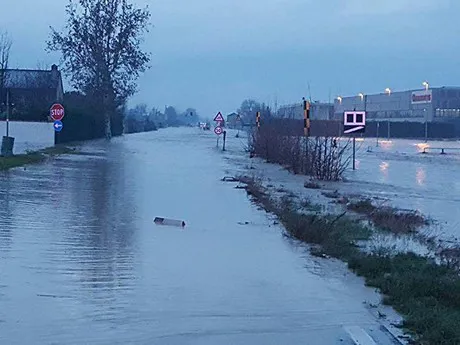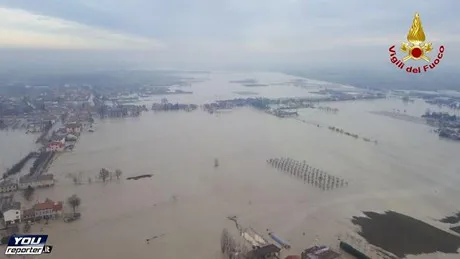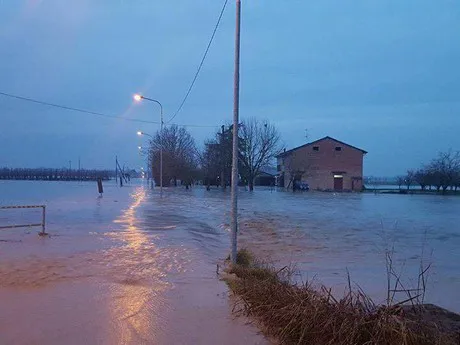
Photo by Elia Lorenzini taken from Emilia Romagna Meteo
Matteo Freddi, an onion producer in the province of Reggio Emilia, reports heavy rains. "The overflow basin wasn't enough and entire territories were flooded. However there doesn't seem to be any damage from an agronomic point of view."

Lentigione, Brescello area (Reggio Emilia)

The Enza river overflowed in Lentigione, photo by Elia Lorenzini taken from Emilia Romagna Meteo
Davide Previati from Asipo reports: "The Enza overflowed in Brescello (Reggio Emilia) and the Parma did in Colorno. The snow that fell on Sunday melted quickly due to the sudden temperature increase with heavy rain."
"Emilia Romagna is in urgent need of water works, starting with the basin for the Enza river, which requires extra funding already solicited by the Consorzio di Bonifica dell'Emilia Centrale. Thousands of families were evacuated and thousands of cultivated hectares were destroyed, especially in Brescello and Boretto. There was also some worry for the overflowing of the Parma and other rivers," reports Confagricoltura Emilia-Romagna Gianni Tosi.
Once again, Confagricoltura Emilia Romagna draws attention to the effects of climate change and recurring floods. "We are asking Institutions to think about the real priorities and urgent policies that need to be adopted. Over the past few years, pseudo-environmental, not very farsighted measures prevailed, leading to a dramatic paralysis."
